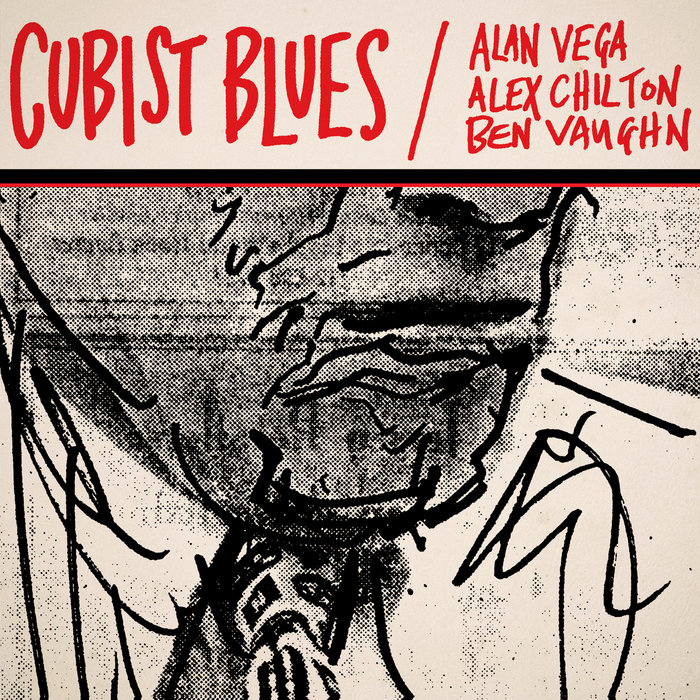
Lover of Love – Alan Vega, Alex Chilton and Ben Vaughn
this blog is GROOVY – check out great Soul, Funk, Jazz, Hip Hop, Bass, Breaks , Reggae, House n many more TUNES
Once upon a time in the gritty streets of New York City, where punk rock met the neon glow of electronic beats, there was a man named Alan Vega. He wasn’t just any musician; he was a pioneer—a true trailblazer who danced on the edges of genres like no other. This story is about his influential journey through music and those funky little facts that make this genre groove even harder.
Back in the early ’70s, when disco lights were flickering and guitar riffs were booming, Vega teamed up with artist Martin Rev to form Suicide. Now, don’t get it twisted; they didn’t name themselves after their existential angst but rather because they wanted to provoke thought: “What’s really dead inside?” Their sound? A wild concoction of primitive rhythms blended with futuristic electronic sounds. It was raw, edgy, and had more energy than a toddler at a candy store!
The duo rolled onto the scene right around 1970 when punk rock was still figuring out its vibe. While everyone else was screaming about rebellion with guitars in hand, Suicide decided to lace their tunes with keyboards and drum machines—an unholy combination for some purists! But guess what? They blew minds instead! Their self-titled debut album dropped in 1977 and became an instant underground classic—think electric shock meets heart-pounding passion.
Now let’s talk style, baby! Alan Vega wasn’t your average frontman. He sported slicked-back hair and wore all-black outfits like he walked straight outta an art-house movie set. A mix between Elvis Presley’s charisma and an avant-garde artist’s flair—he could’ve been mistaken for a James Dean reincarnate…who liked to scream into microphones!
One funny nugget from his performances? Sometimes during shows, he’d go full-on theatrical mode—flailing his arms while plugged into amps as if trying to channel some kind of cosmic spirit through fuzz pedals! And often enough? His gear would short-circuit mid-show leading him to exclaim things only fellow musicians would understand… or roll their eyes at.
Vega wasn’t just making noise; he influenced countless artists across various genres. The likes of Nirvana, The Strokes, even modern electronic wizards like Skrillex have all cited him as inspiration at one point or another—not bad for someone who once sang songs about chaos over synths!
One can only imagine how different today’s music landscape might look without him paving that road toward experimentalism mixed with punk attitude. And hey here’s something funny: Apparently Depeche Mode once offered Alan Vega $1 million dollars…to do absolutely nothing during one week-long festival show! I mean c’mon—could you say no if someone paid you not to perform?
Throughout his career, Alan collaborated with many funky characters along the way—the most notable being Japanese musician Yoko Ono (yes folks!). Together they made sonic experiments filled with wild sounds reminiscent of alien transmissions—which surely must’ve opened up portals somewhere in Brooklyn!
Another groovy partnership happened when he teamed up with producer Martin Atkins, which resulted in tracks that made listeners feel like dancing straight off urban rooftops amid midnight skyscrapers glowing under starlit skies.
But wait for it… here comes another chuckle-worthy fact: rumor has it that during one recording session together—with too much caffeine buzzing through them—they accidentally recorded thirty minutes worth of just laughing! Yup—that’s right folks; laughter turned into legendary tracks—it can happen anywhere!
Fast forward past glories—from live albums echoing throughout dingy clubs filled again by millions—all coming back each year revived within festivals celebrating such unique talents—as well posthumous releases solidifying legacy today alongside living legends alike—we continue this journey learning where our roots lie tucked away underneath debris collected amongst dust-covered vinyl records piled high across basements everywhere seeking fresh grooves yet unexplored before anyone finds them again loud enough beneath closed doors acting lived-in since bygone days swirling ever onward until forever locked safely lost timelessly preserved awaiting rediscovery over time alongside muses guiding our paths now taking us onward unto further adventures still whispering sweet melodies shared sung softly lingering echoes fading long after final curtains fall…
And thus ends this lovely chapter exploring not just Alan Vega, but also shining light brightly illuminating influences intertwining histories continuously connecting dots revealing joyful journeys marked indelibly resonating freely left behind enriching lives every beat standing tall proud highlighting stories serenading memories cherished always remembering truths divulged bringing forth laughter reminding us why we fell deeply head-over-heels falling madly crazy encompassing love surrounding life known simply called …music 🎶✨

Lover of Love – Alan Vega, Alex Chilton and Ben Vaughn